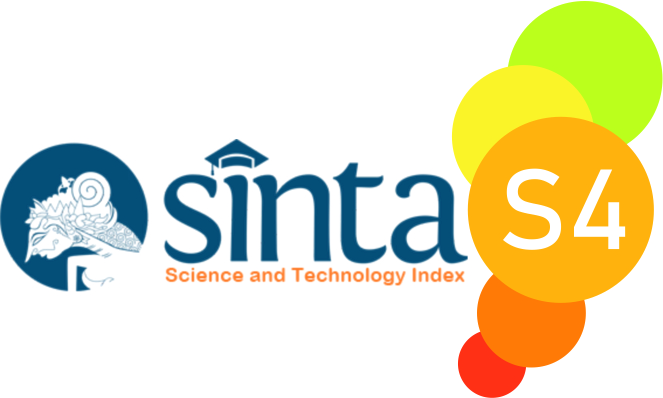Investigating The Implementation Of Gamification Approach To Enhance Students Learning Engagement
Abstract
Students experienced online learning since the CoVid-19 pandemic started. Gradually, the students became disengage to the lesson. This issue is urgent as low learning engagement will impact students’ growth in developing critical thinking skills, learning achievement, and enduring understanding. Further, this impacts the students’ performance under iB Curriculum which integrates critical thinking throughout the lesson. This research aims to investigate the effectiveness of the gamification approach in enhancing students learning engagement through the utilizations of gamified learning application such as Quizziz. Also, to find how significance is the role of teacher while implementing the gamification approach. There were three cycles to obtain qualitative data. The study shows that the implementation of gamification demonstraded significance impact in enhancing students’ learning engagement. Student who are engaged will have higher motivation in learning, well-developed critical thinking, and also effective learning experience. This lets the students to effectively exercise their God-given attributes as human beings to learn at their best. It is recommended in future research to collaborate with other teachers from different subjects with same grade level, have longer implementation period to compare the effectiveness during online and hybrid learning, and to elaborate different gamified learning platforms that have different modes and user interface.
References
Bavinck, H. (2011). Reformed Dogmatics: Abridged in One Volume. Grand Rapids: Baker Academics.
Berkhof, L. (1993). Teologi Sistematika 1. Terj. Surabaya: Momentum.
Budianto, L., Hadi, I., & Zulaiha, S. (2022). Foreign Teachers’ Insights Regarding Teaching “Conversation” in Boarding School. Journey: Journal of English Language and Pedagogy, 5(2), 142–148. https://doi.org/10.33503/journey.v5i2.1903
Chou, Yu-kai. (2014). Actionable Gamification: Beyond Points, Badges, and Leaderboards.
Duka, H. (2018). Peranan guru Kristen sebagai pembimbing dalam penanggulangan perkelahian kelompok di lingkungan SMP Kristen Makassar. Repository Sekolah Tinggi Theologia Jaffray, 61-80. https://repository.sttjaffray.ac.id/publications/269001/peranan-guru-kristen-sebagai-pembimbing-dalam-penanggulangan-perkelahian-kelompo#id-section-content
Engzell, Per, Frey, A., & Verhagen, M. D. (2021). Learning loss due to school closures during the COVID-19 pandemic. Proceedings of the National Academy of Sciences, 118(17), 1-7. https://doi.org/10.1073/pnas.2022376118
Erickson, Millard J. (2001). Introducing Christian Doctrine: Second Edition. Grand Rapids.
Faisal, E. (2017). Gamification of Foreign-Language Vocabulary Learning using Mobile Augmented Reality. IEEE 1-5. DOI: 10.13140/RG.2.2.34941.41442
Göksün, D. O. & Gürsoy, G. (2019). Comparing success and engagement in gamified learning experiences via Kahoot and Quizizz. Computers & Education 135: 15-29. https://doi.org/10.1016/j.compedu.2019.02.015
Goscu, E., & Cagda K. C. (2016). The Importance of Using Games in EFL Classrooms. Cypriot Journal of Educational Sciences 11(3):126–35. http://sproc.org/ojs/index.php/cjes/
Graham, D. L. (2009). Teaching Redemptively: Bringing Grace and Truth into Your Classroom. USA: Purposeful Design Publications.
Haeley, D. (2019). Gamification. Macmillan Education.
Hoekema, A. A. (2008). Manusia: Ciptaan Menurut Gambar Allah. Surabaya: Penerbit Momentum.
Jonathan, F. C., & Recard, M. (2021). The Implementation of Gamification Concept Inside Online Classroom Activities To Promote Students’engagement. IJIET (International Journal of Indonesian Education and Teaching), 5(2), 176-184.
Kim, S. (2015). An Observational Research on the Limitations and Side Effects of Gamification in Educating Human Resources. Journal of Korea Game Society, 15(3), 87–96. https://doi.org/10.7583/JKGS.2015.15.3.87
Knight, G. (2006). Philosophy & Education. Michigan, USA: Andrews University Press.
Kompas. (2021, October 17). Nadiem Makarim: 80 Persen Orangtua Ingin Anaknya Jalani PTM Terbatas. Kompas.com. https://www.kompas.com/edu/read/2021/10/17/095348971/nadiem-makarim-80-persen-orangtua-ingin-anaknya-jalani-ptm-terbatas?page=all
Learning Engagement. (n.d.). Suny Empire State College. https://www.esc.edu/global-learning-qualifications-framework/learning-domains/learning-engagement/#:~:text=Definition%3A%20Learning%20engagement%20is%20the,in%20an%20effective%20learning%20process.
Lukito, D. L. (2002). Pengantar Teologia Kristen 1. Bandung: Kalam Hidup.
Merriam-Webster. (n.d.). Gamification. In Merriam-Webster.com dictionary. Retrieved September 11, 2021, from https://www.merriam-webster.com/dictionary/gamification
Merriam-Webster. (n.d.). Implementation. In Merriam-Webster.com dictionary. Retrieved September 11, 2021, from https://www.merriam-webster.com/dictionary/implementation
Moes, P. & Donald J. T. (2014). Exploring Psychology and Christian Faith. Baker Publishing Group.
Papp, T. A., & Theresa, A. (2017). Gamification effects on motivation and learning: Application to primary and college students. International Journal for Cross-Disciplinary Subjects in Education, 8(3), 3193–3201.
Pratomo, A. (2018). Pengaruh Konsep Gamifikasi Terhadap Tingkat Engagement. The Journal: Tourism and Hospitality Essentials Journal, 8(2). 63-74. https://doi.org/10.17509/thej.v8i2.13740
Priska, V. (2020). Pentingnya Menanamkan Karakter Sejak Dini. EduPsyCouns: Journal of Education, Psychology and Counseling, 2(1), 193-201. https://ummaspul.e-journal.id/Edupsycouns/article/view/433
Rahman, M. H. A. R., Panessai, I. Y., Noor, N. A. Z. M., & Salleh, N. S. M. (2018). Gamification elements and their impacts on teaching and learning – a review. The International Journal of Multimedia & Its Applications (IJMA) 10(6), 37-46. 10.5121/ijma.2018.10604
Sulispera, T., & Recard, M. (2020). Octalysis Gamification Framework for Enhancing Students' Engagement in Language Learning. Jurnal Dialektika Program Studi Pendidikan Bahasa Inggris, 8(2), 103-128.
Thiessen, H. C. (1979). Lectures in Systematic Theology. Grand Rapids: William B. Eerdmans Publishing Company.
Wolterstorff, N. (2002). Educating for Life: Reflections on Christian Teaching and Learning. (G. G. Stronks & C. Joldersma, Eds.). Grand Rapids, Mich.: Baker Academic.
Copyright (c) 2023 Michael Recard

This work is licensed under a Creative Commons Attribution-ShareAlike 4.0 International License.

Journey: Journal of English Language and Pedagogy by http://ejurnal.budiutomomalang.ac.id/index.php/journey/index is licensed under a Creative Commons Attribution-ShareAlike 4.0 International License.






